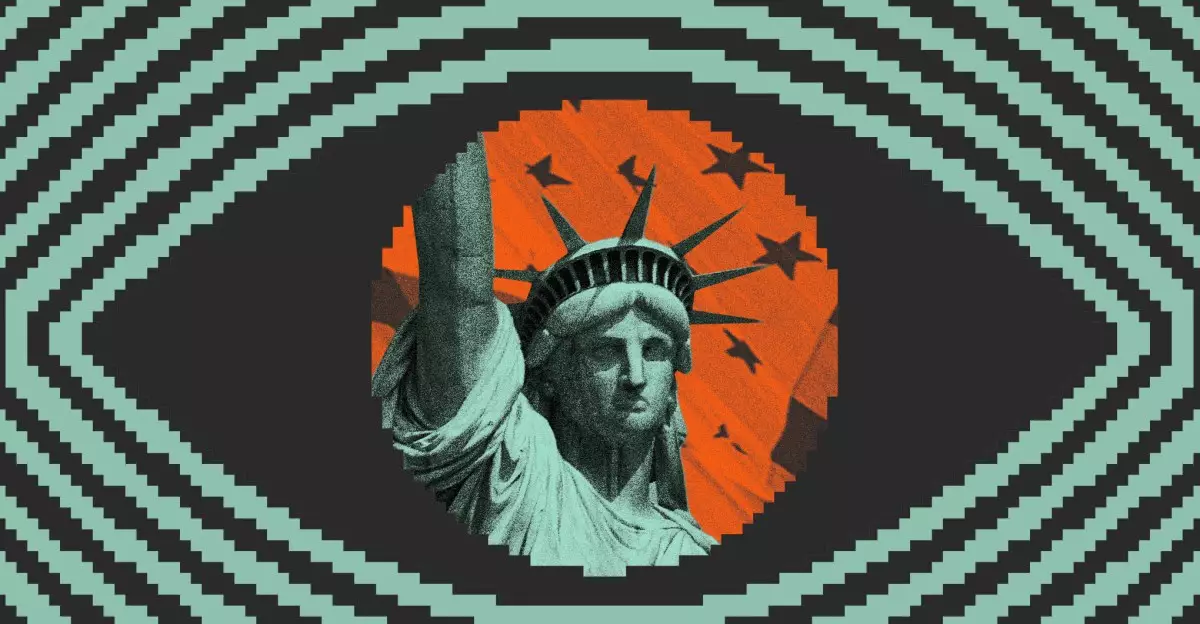In recent developments, New York City’s partnership with Citizen epitomizes the ongoing transformation in urban safety initiatives. This collaborative effort grants city agencies the ability to send targeted alerts based on real-time data and enables law enforcement to access a vast array of public videos posted by app users. While the innovation promises a more dynamic and immediate response to emergencies, it also raises critical questions about the boundaries of privacy and civil liberties. This shift from traditional policing to data-driven surveillance reflects a broader trend—one that oscillates between public safety and individual freedom.
The core objective of this partnership is to leverage user-generated content to enhance city authorities’ responsiveness during crises. By tapping into Citizen’s platform, NYPD, fire departments, and emergency management teams can swiftly access footage relevant to specific incidents, potentially accelerating investigations and interventions. This technological synergy could be a game-changer, transforming the way cities manage safety, especially amid escalating urban challenges like violent crimes, natural disasters, or large-scale disturbances. However, the assumption that faster access to videos automatically translates into safer communities neglects the complex social and ethical considerations involved.
Technological Efficacy Versus Privacy Concerns
The strategic integration with Citizen’s platform, further connected through Axon’s Fusus system, exemplifies a broader police-forward approach that emphasizes technological dominance. Axon’s partnership with Ring and Citizen underscores a shift whereby law enforcement agencies no longer rely solely on traditional methods but increasingly depend on private platforms offering real-time data collection. This raises an important debate: are citizens fully aware of the extent to which their posts and videos are now harnessed by authorities? Citizen assures users they can opt-out of sharing videos with law enforcement, but the public nature of postings—viewable and downloadable by anyone—complicates this assurance.
Critics rightly argue that such integrations tip the scale toward surveillance capitalism, where personal content becomes a tool for law enforcement without clear consent or boundaries. The very premise of citizen-generated videos being used to inform policing efforts risks reinforcing community mistrust, especially when the line between voluntary reporting and intrusive monitoring becomes blurred. The concern is that these tools, initially meant to empower residents, might inadvertently become instruments of social control, fostering a climate of suspicion and fear rather than safety.
Power Dynamics and Ethical Implications of Surveillance Expansion
The city’s move to actively push safety alerts to residents based on location data reflects an assumption: that more information equates to better safety. But this perspective overlooks the potential for misuse and unintended consequences. When alerts are personalized and real-time, they might inadvertently foster panic or fear, especially if misinformation accompanies rapid dissemination of safety concerns. Furthermore, the access law enforcement has to posted videos—sometimes in national security contexts—gives rise to a dangerous concentration of power.
Historically, surveillance technologies have disproportionately targeted marginalized communities, often reinforcing systemic biases rather than alleviating underlying issues. The adoption of such systems in New York City underscores the risk of normalizing invasive monitoring under the guise of safety. It raises profound questions: who is truly protected by such measures? Are these tools serving the broader public interest, or are they increasing systemic vulnerabilities and eroding trust between civilians and authorities?
Ultimately, the ethical dilemma centers on consent, transparency, and accountability. Citizens may share videos with good intentions, but once their content becomes part of law enforcement repositories, the potential for misuse, data breaches, or unwarranted surveillance escalates. The promise of quick alerts and real-time data must be balanced against the imperative to respect individual privacy rights and democratic freedoms.
The Future of Urban Safety: A Balance or a Battleground?
As cities continue integrating advanced surveillance and data-sharing platforms, the core challenge remains: how can societal safety be improved without sacrificing fundamental rights? The partnership between New York City and Citizen embodies a bold step toward smarter urban management, yet it also exemplifies the peril of unchecked technology adoption. The risk is that in our pursuit of security, we may inadvertently strip away the personal freedoms that form the bedrock of democratic societies.
It is tempting to view these innovations as purely beneficial, but a wary perspective recognizes that technology is inherently neutral—its impact depends on how it’s wielded. If oversight, community engagement, and ethical standards are not prioritized, these tools could deepen social divides and entrench surveillance states. Vigilance must mirror innovation, ensuring that progress does not come at the expense of liberty. Only through critical scrutiny and ongoing public dialogue can we navigate the complex intersection of safety, privacy, and civil rights in this new digital age.

